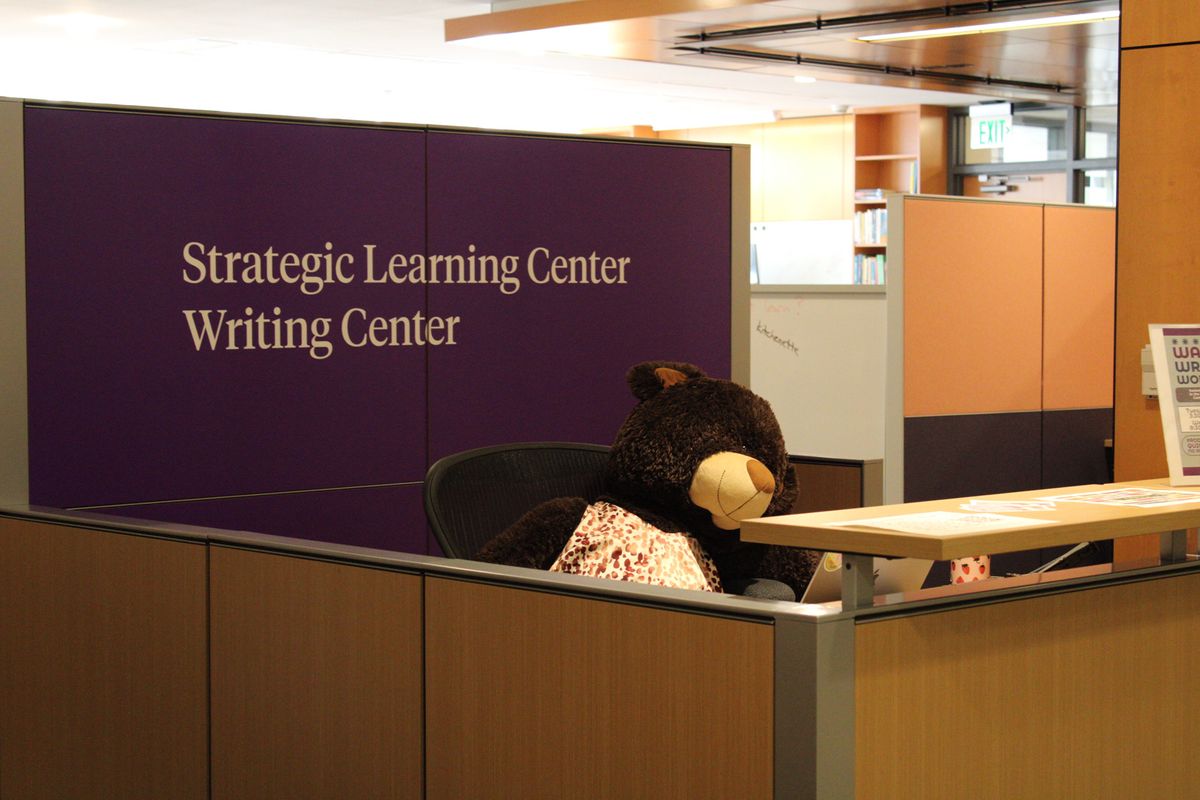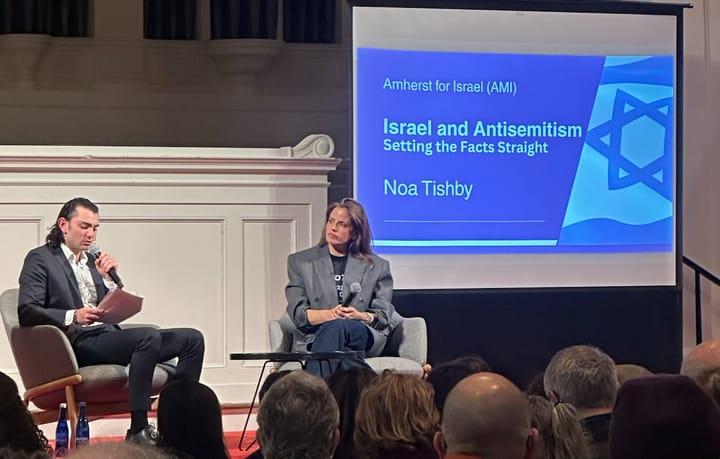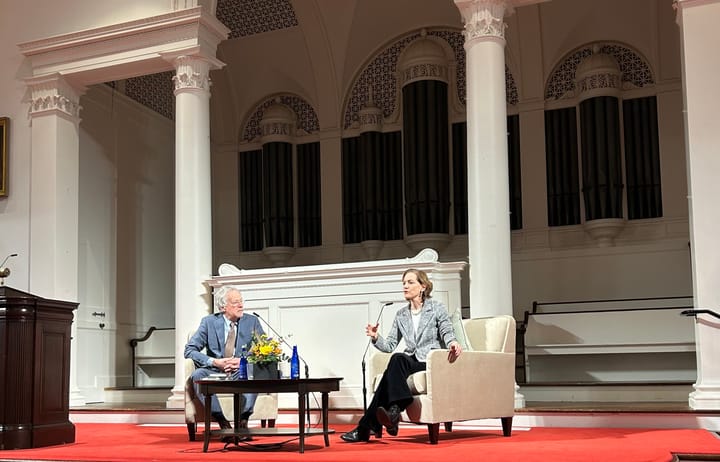Writing Center, Office of Sustainability Find New Homes
The completion of the Lyceum set off a chain of moves across campus. The Writing Center and the newly-formed Strategic Learning Center now occupy the second floor of Frost, while the Office of Sustainability has set up shop in Charles Pratt.

As a new crop of first-years thundered into Charles Pratt Hall to mark the start of the school year, a change was, literally, afoot.
Once found on the first floor of Charles Pratt, the Writing Center is now housed on the second floor of Frost Library. The Office of Sustainability has in turn taken over the space in Charles Pratt.
The moves were enabled by the recent opening of the Aliki Perroti and Seth Frank Lyceum, an academic building now home to the Center for Humanistic Inquiry, which vacated the space on the second floor of Frost. Staff leaders say the shuffle will yield fresh opportunities for student engagement and programming efforts.
The Writing Center
The Writing Center move happened mid-July, a week before the Summer Bridge program, which gives FLI students an early opportunity to familiarize themselves with the college’s resources, began. This meant the center was able to host students in the new space near the end of July. The space is much larger than the center’s prior home in Charles Pratt.
“Our old space was really just a space where we could hold consultations with students. There wasn’t a lot of space for students to linger, or to use it as a writing space,” said Jessica Kem, director of the Writing Center.
The new space contains areas open to students for working and collaboration.
“One [new opportunity] is we are located in a place where students are already coming to do work to be focused and productive. We are extending that [into the center],” explained Kem. Many programs, like the center’s thesis write-ins, had already taken place in Frost, and will now have their right place in the Writing Center. Similarly, Susan Daniels, the center’s public speaking associate, also has an office in the new location.
Another upside to the Writing Center’s shift is the opportunity for collaboration with the Strategic Learning Center (SLC), a new center on campus that aims to promote students’ academic success, which is also housed on the second floor of Frost. The SLC helps students develop strategies to improve their time-management skills, study habits, focus, stress management, sleep, and more.
Students can already receive help from the SLC by signing up for an appointment on the center’s website. Although its director, Larissa Hopkins, is currently the only staff member, it is in the process of adding four peer academic coaches and an associate director.
Hopkins was excited about collaboration with the Writing Center.
“[At] the Strategic Learning Center, we could be helping students with thinking through different strategies for managing stressors, and then [they] have the ability to work towards hands-on implementation [at] the Writing Center,” Hopkins said.
The location change will also allow the Writing Center to offer new programs, for instance, a walk-in writers workshop, which starts this week, 90 minutes a day from Tuesday to Friday.
The workshop allows students to get help without making an appointment — which is something the Charles Pratt office did not have the space for.
Kem and Hopkins added that getting the word out about the location change and the new opportunities for students has proven difficult. This has primarily been a concern with regard to upperclassmen, since both centers saw visits from the first-years as part of their orientation.
“What’s important is highlighting [that] this is a learning and teaching commons,” Hopkins said of Frost’s second floor. “Our hope is that students are coming here to study [and] have the opportunity to do drop-in meetings.”
The Office of Sustainability
The Writing Center’s shift allowed the Office of Sustainability to address challenges of its own by moving to Charles Pratt over the summer.
Perhaps most importantly it offers a stronger sense of unity across the department. In past years, its director and its “green dean” (a one-year fellow) resided in separate buildings.
“I spent more time on the phone with the green dean than in person,” said Weston Dripps ’92, the current director of sustainability. Dripps described the new space in Charles Pratt as a game-changer.
“It will provide us not only a space for our student fellows and EcoReps to work and gather, but also provide us with a physical home, identity, and destination to host our student, staff, and faculty programs moving forward,” he said.
For students working at the office, the new location is also a welcome change.
Alex McIntosh ’26, one of the current EcoReps (students who support sustainability efforts), finds it less out of the way. “A spot on the main quad is a lot less inconvenient than the trek down to Wes’s little office in facilities that he was using last year,” McIntosh said.
According to Henry Bontempo ’26, the Zero Waste fellow, the move is also likely to boost awareness of sustainability efforts among the broader college community, “whether that’s the work the EcoReps do in residence halls, or Earth Week in the spring, or the free clothing event last week.”
McIntosh also pointed out that the office’s proximity to new students could be an upside. “People form many habits they’ll keep for [all] four years during the beginning of their first year — so it’s really helpful to actually be located within one of the first-year residence halls,” he said.
In offering a consistent home, the new space allows for a greater sense of stability among both those who work there and the recipients of its programming. “[It’s] a space to host meetings and events, which, given the office's relative newness on campus, will grant programs we’ve pioneered over the past few years a sense of rhythm and continuity,” Bontempo said. Already, the space itself has been physically transformed. It features thrifted and reused furniture, offering a hint of the office’s dedication to sustainability. A mural is also in progress — painted by the students in Assistant Professor of Art Lucia Monge’s course “Public Art and Collaborative Practices.”
In the long term, the hope is that the space will serve as a physical hub for sustainability on campus, Dripps said. “I want this space to be a central gathering space for students and the campus community to come together, learn together, and inspire and empower each other to collectively ideate and tackle sustainability challenges and build the campus sustainability culture.”





Comments ()